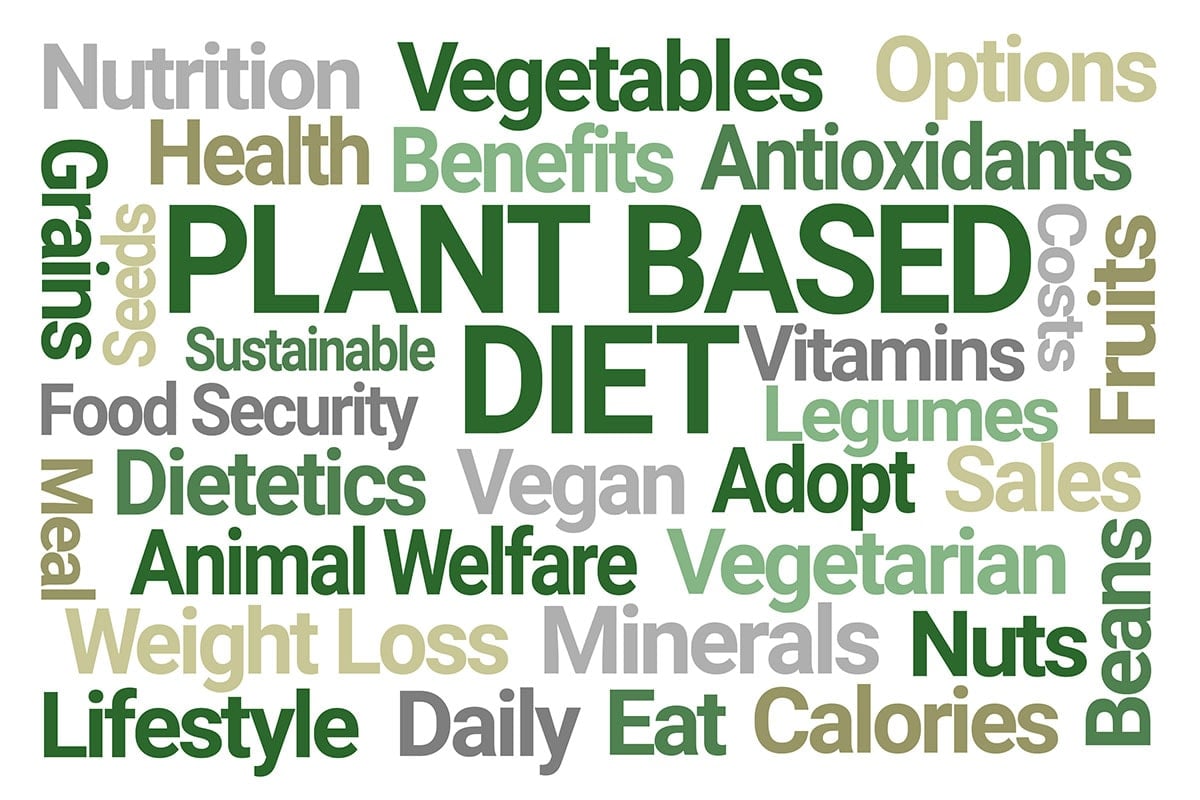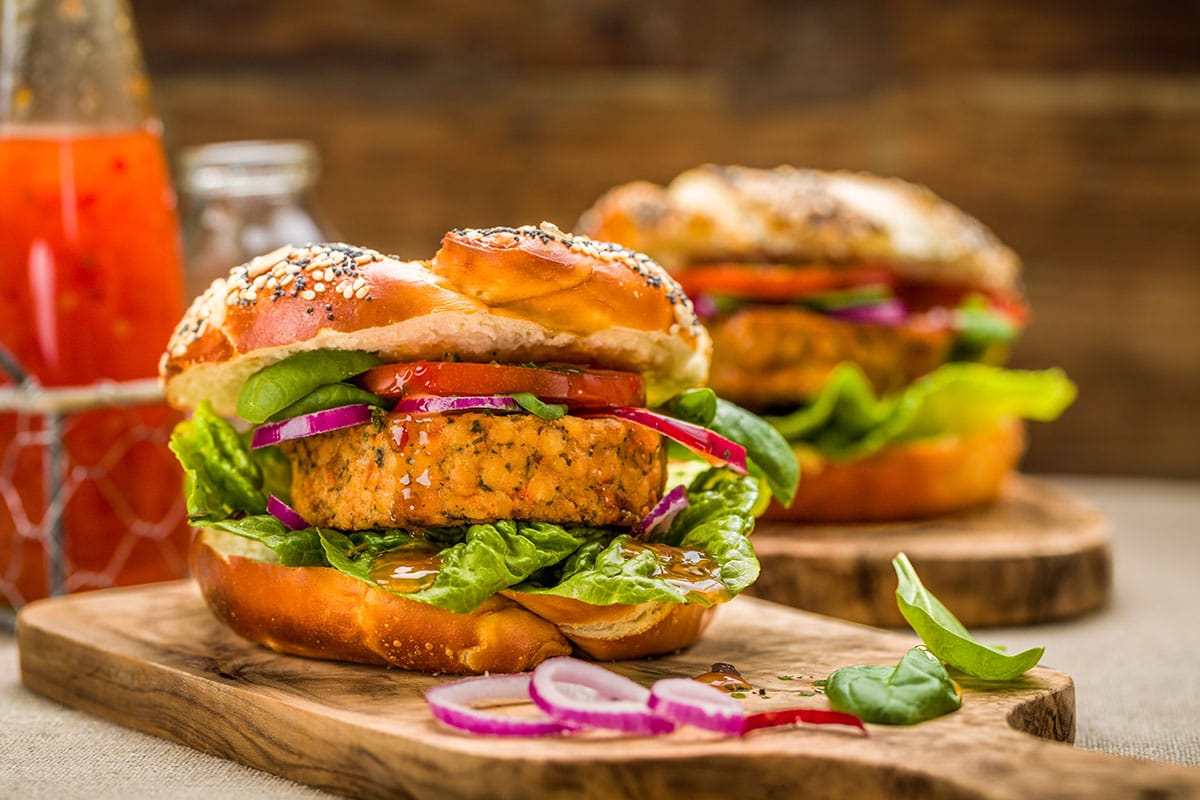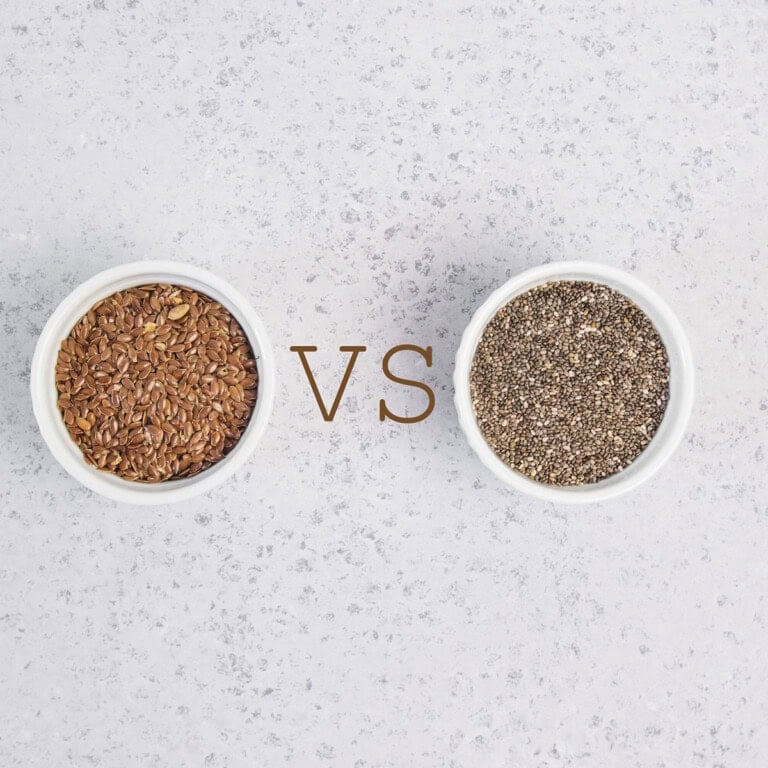Difference Between Plant Based And Vegan
Plant based and vegan are somewhat related and can often be interchanged, but the two are very different. Therefore, knowing the difference between plant-based and vegan is essential.
Eating habits and food choices are changing not just in the US but all over the world. The reasons behind this vary with every individual.
While some may limit their meat intake for health reasons, others may completely avoid animal foods because of their love for animals and the environment. This brings us to two main categories, namely plant based and vegan. This article gives you a better understanding of this key difference.

What Does it Mean to Be Plant Based?
Being plant based means consuming foods primarily derived from plants. While there are many kinds of plant-based diets, such as vegetarian diets, they all feature predominantly fruits, vegetables, whole grains, nuts, seeds, and vegetable oils. Still, they may also include some animal products like dairy and eggs.
Plant based diets are all about reducing your consumption of animal products, especially for health or religious reasons.
What Does it Mean to Be Vegan?
You’re probably aware that being a vegan means avoiding any food products from animals. That includes meat, poultry, fish, eggs, dairy products (like milk or cheese), honey, gelatin, and even items containing such ingredients as whey or lactose. It also means no leather goods, suede goods (shoes), wool clothing, or any other animal byproducts.
That makes a vegan diet any diet that excludes the consumption of animal foods, including meat, eggs, dairy, poultry, honey, and seafood such as fish or any other food product that has been tested or tried on animals.
For instance, food products that contain sugar that has been filtered through bone char may not be considered vegan. Likewise, during wine processing, fining agents like fish guts and eggs may be used. Such wines may also not be considered vegan.

What is the difference between plant based and vegan?
The most significant distinction between plant based and vegan is that vegans exclude all animal products from their diet, including meat, fish, eggs, dairy products, and honey. They also avoid clothing, accessories, and cosmetics made from animal products and byproducts.
In addition to avoiding certain animal products, vegans also try to minimize their environmental impact by only buying products made with sustainable materials.
In contrast, a person who follows a plant based diet doesn’t necessarily avoid animal products and may eat eggs or dairy occasionally. This person, however, does focus on eating primarily whole, unprocessed foods.
Eating less meat is an easy way to help reduce your carbon footprint: Reducing your meat consumption will free up more land for wildlife conservation and prevent deforestation caused by raising livestock. Also, meat production consumes a lot of water as it requires much more water than most other forms of protein production.
If you’re thinking about becoming either plant based or vegan, it’s helpful to understand how they differ from one another so you can make the choice that best suits you. Or at least work your way up from just being plant based to being a vegan.
Plant-based vs. Vegan: Which one is better?
Whether vegan or plant based is healthy depends entirely on what plant foods you choose to eat since not all plant-based foods are equal.
For instance, if you baked potatoes and ate them for lunch with a large bowl of salad and someone else eats French fries with some tomato sauce, you all would have eaten plant based foods, but its effects on your bodies will be totally different.
Processed plant foods have no nutrients and are instead high in saturated fats and trans fats, all of which can contribute to lifestyle diseases.
On the other hand, whole plant-based foods are generally healthy. They are high in fiber, minerals, vitamins, and other disease-fighting properties, making whole plant-based diets a healthy kind of diet to consume.
But if you opt to go vegan, meaning you’ll eliminate any form of animal products from your diet, keep in mind that there are essential nutrients you will have to supplement, such as vitamin B12 as they are not available in plant foods.
Also, while veganism is more of an ethical pursuit, plant-based is geared more towards promoting a healthy lifestyle and wellbeing.
Can You Eat Meat On A Plant-Based Diet?
Plant based doesn’t necessarily mean vegan as one can still consume minimal amounts of animal products like meat, dairy, eggs, and poultry depending on the different plant-based categories.
Types of plant-based diets
1. Vegetarian
This is a plant based diet that excludes meat, fish, and poultry but allows for eggs and dairy depending on a specific category.
A vegan diet is a type of vegetarian diet that eliminates animal products such as meat, fish, poultry, dairy products, eggs, and any food that contains these products. When talking about a vegetarian diet, most people think of entirely off animal products. However, a vegetarian diet can be classified depending on what type of food is included or excluded. Other classes of a vegetarian diet include:
a) Lacto-vegetarian
A Lacto-vegetarian diet excludes meat, fish, eggs, poultry, and all products containing them but allows for dairy and dairy products.
b) Ovo-vegetarian
Ovo-vegetarian is a vegetarian diet that includes eggs but avoids all other animal products, including meat, dairy, poultry, fish, or any other foods containing them.
c) Lacto-ovo vegetarian
A Lacto-Ovo vegetarian diet excludes meat, fish, and poultry but allows dairy and eggs.
2. Pescatarian
A pescatarian diet is primarily based on plant foods but includes seafood like fish and shellfish while avoiding all other forms of meat.
Some pescatarians may include dairy and eggs in their diet while others don’t
3. Flexitarian
A flexitarian diet is also called a semi-vegetarian diet, and as the name suggests, it’s the most flexible of all types.
Though its foundation is highly built on plant foods, a flexitarian diet allows for all types of animal products, including dairy, meat, eggs, and fish.

Why Should You Go Plant-Based or Vegan?
You may already be aware of the benefits of eating more plant-based foods (such as reducing your carbon footprint and helping animals), but did you know that eating a plant-based diet can also improve your health?
Here’s what eating more plants through a plant-based lifestyle or a vegan approach can do for you.
1. It can help you lose weight
Weight loss is just one of many health benefits of going plant-based or vegan. Research shows that following a diet rich in fruits and vegetables may reduce your chances of gaining weight!
When done right, following a plant-based diet can help you feel fuller faster and eat fewer calories overall. This makes it an effective tool for helping with weight loss.
Moreover, a study found that people on a vegan diet may lose more weight than those on a vegetarian diet.
Controlling your weight may also help lower your risk of heart disease, diabetes, and cancer.
2. It can improve your heart health
A well-planned vegan diet can be incredibly healthy for your heart, thanks to its low levels of saturated fat and high levels of antioxidants.
A study by Harvard Medical School found that plant-based diets are linked to lower blood pressure and cholesterol levels and lower rates of death from cardiovascular disease.
If you’re looking to drop pounds healthily or reduce your risk of heart disease, adopting a vegan diet is one way to start.
3. It can increase your energy levels
A plant-based diet can help you feel more energetic than ever. By eliminating meat, dairy, and eggs from your meals, you eliminate a considerable amount of saturated fat that slows down your metabolism.
Not only that, with plant based meals, there is no need to worry about eating too much protein, which can lead to fatigue and lethargy.
On a plant based diet, you get all your protein from complex carbohydrates and healthy fats, so you never feel tired after a meal.
4. It’s good for the skin
Not only is eating plant foods great for your health, but it’s also good for your skin. Studies have shown that a plant-based diet helps to prevent and combat acne, while dairy products can cause breakouts by increasing hormones in your body.
Plant based and vegan diets have also been linked to improved skin clarity and texture – so if you’re struggling with skin issues, consider including more plant foods while limiting or eliminating animal foods from your diet.
5. It strengthens the immune system
Many of us were raised to believe that a diet rich in meat, eggs, and dairy is key to a strong immune system. In actuality, the fiber, vitamins, and minerals found in plant-based foods keep your body running optimally and can help you fight off disease.
On the other hand, animal products may actually increase your chances of developing certain conditions. Studies have shown that meat and dairy products may be linked to an increased risk of heart disease, diabetes, and cancer.
6. It helps protect the environment
Animal agriculture is a leading cause of global warming, water pollution, deforestation, and habitat destruction. It’s also one of the largest producers of carbon dioxide on Earth. If everyone were to adopt a vegan diet and lifestyle, it would dramatically reduce our carbon footprint.
In fact, according to research published in Environmental Science & Technology, simply by switching from a standard American diet to a plant-based one, we could reduce food-related greenhouse gas emissions by as much as 70 percent! That’s a substantial change!
7. It may save you some money
If you’re on a tight budget, making plant-based or vegan meals and snacks is an easy way to cut back on your grocery bill. Plant-based foods like whole grains and legumes are cheaper than their meat-based counterparts.
For some people, this could even mean dropping a couple of steak dinners from the weekly menu in favor of more affordable plant-based options. That alone can save a good deal of money each month.
8. It can lower your risk of developing cancer
A growing body of research suggests that animal protein increases cancer risk. According to some studies, people who consume high amounts of animal proteins have an increased risk for colorectal, pancreatic, prostate, and breast cancers. By contrast, consuming a plant-based diet with little or no animal products lowers cancer risk.
Plant foods are rich in antioxidants that help fight free radicals that may cause oxidative stress in the body, leading to cell damage that may facilitate the development of cancer, its progression, or prognosis.
9. It can lower cholesterol levels
Cholesterol levels are a key marker for heart disease risk. By avoiding foods high in cholesterol and saturated fat, like red meat and other animal products, you’ll reduce your risk for coronary artery disease.
A plant-based diet reduces bad (LDL) cholesterol levels while increasing good (HDL) cholesterol levels. A study published in the American Journal of Clinical Nutrition found that vegetarian men have about a 10 percent higher level of HDL than omnivores do. This translates to a 20 percent reduced risk for heart disease over an average lifetime.
Final Thoughts:
Plant-based diets are generally built around plant foods but may allow animal products, whereas a vegan diet completely excludes animal products and byproducts.
And although a vegan diet is still a form of a plant-based diet, veganism is more of activism for animals and the environment than for health and wellbeing.
For these reasons, most vegans may not worry much about what kind of plant-based foods they consume. This can lead to the neglect of essential supplements that lack in plant foods, and the body can’t produce naturally, leading to health issues.
Also, consuming highly processed plant foods will still be plant-based, but they may not benefit your body in any way as they have been reaped off their nutrients.
While many may find it challenging to cut off animal products from their diet completely, it may be easier to start with one of the plant-based diet categories. These include Lacto-vegetarian, Ovo-vegetarian, Lacto-ovo vegetarian, Pescatarian, and Flexitarian.
Many people are getting into a plant-based diet for better health. They believe that removing animal products from their diet will improve their overall health, help control weight gain, boost the immune system, increase energy levels, lower the risk of cancer, reduce cholesterol levels, and improve heart conditions such as high blood pressure.
Lastly, don’t forget, plant-based foods are way cheaper than their animal counterparts!
Other Related Articles
- Start A Vegan Diet
- Gluten-Free Vegan Shopping List
- Jamaican Vegan Recipes
- How Many Teaspoons In A Tablespoon
- How Many Grams In An Ounce
- Celsius To Fahrenheit Chart
If you enjoyed this post about the Difference Between Plant Based And Vegan and would love to see more, join me on Youtube, Instagram, Facebook & Twitter!
Get discounted copies of my cookbook here.
Fortunately, because of the ads on our website, readers and subscribers of Healthier Steps are sponsoring many underprivileged families. Thank you!
Also, please leave a star rating! ;-)







It seems to me that I know pretty much what the difference is between veganism and plant-based diets
People use these terms interchangeably. I have always wondered what the difference was between the two. Thank you for the detailed explanation.
I pretty much had the idea about the difference between plant-based and vegan. It’s not for me though, carbs make me sick.
Thank you for these details! It’s important to know the difference between these 2 terms as many of us think that they have the same meaning!
I can definitely see the health and ethical benefits to adopting a plant based or vegan diet!
Thanks for the clear explanation! I’m slowly moving towards a more plant-based diet.